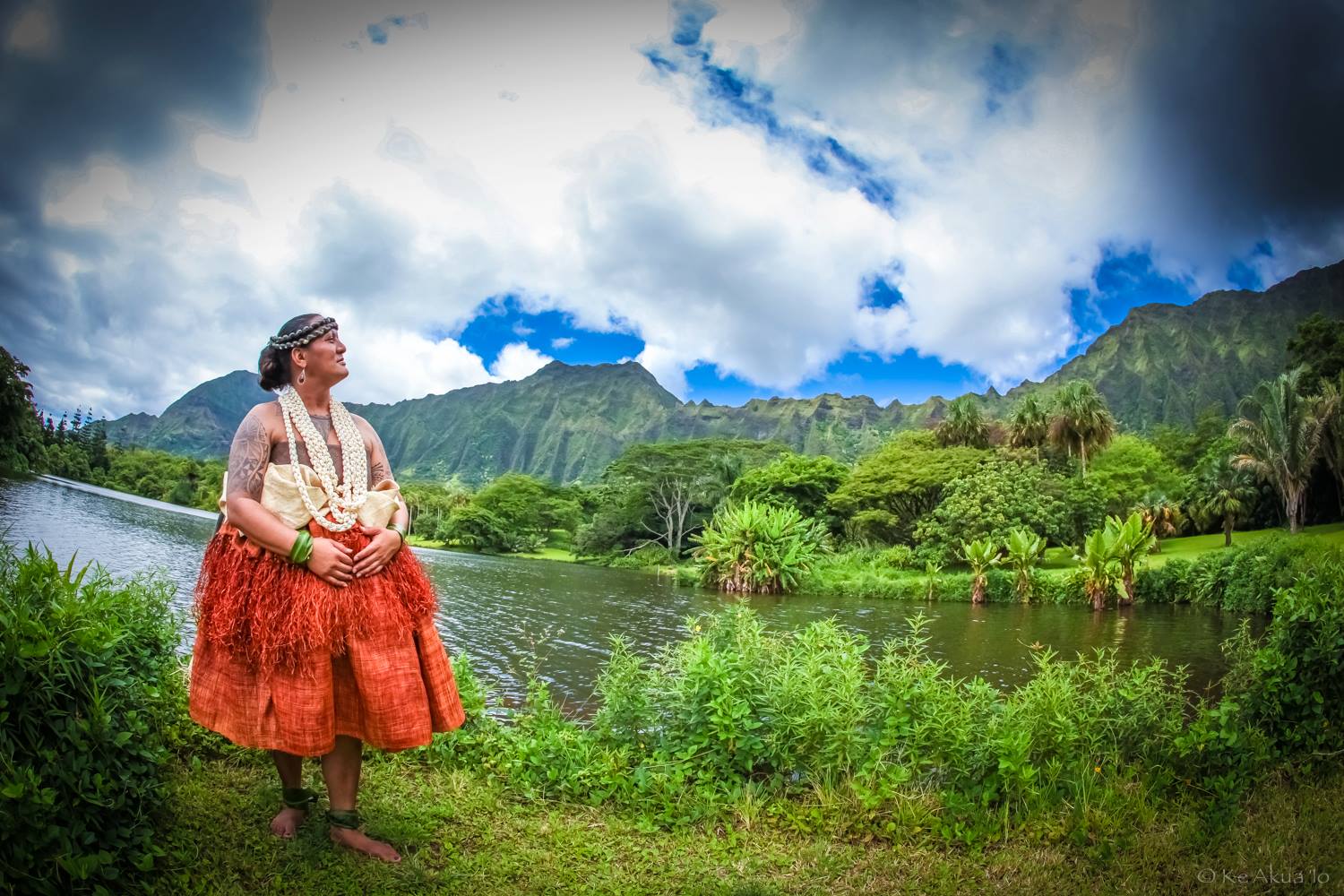Hawaiian culture empowers and inspires throughout the islands, from the beautiful dance of hula to the traditions of mahu. For Hinaleimoana Kwai Kong Wong-Kalu, a cultural advocate and transgender woman at the center of the documentary Kumu Hina, this culture has defined her life.
Text by Kelli Gratz
Images by Kai Markell
In 2011, filmmakers and partners Dean Hamer and Joe Wilson began a cinematic journey—one that neither of them could have anticipated. The subject they started with was Hinaleimoana Kwai Kong Wong-Kalu, cultural advocate, transgender woman, and Director of Culture at Hawaiian values-based public charter school Halau Lokahi.
For the next two years, they followed Wong-Kalu through an interesting time in her life—she had recently married Haemaccelo Kalu, a native of Tonga, and was facing the daily struggles of leading an all-male hula troupe.
But throughout the filming process, another story presented itself in the form of a sixth-grade girl named Hoonani, who insisted on joining the troupe. The result of that collision of stories is the gorgeous, inspiring three-character PBS docu-drama Kumu Hina.
Born for the Spotlight
Being in the spotlight seems natural for 42-year-old Wong-Kalu. For more than two decades, she has lived her life as a mahu wahine, or transgender woman, and hasn’t ever looked back.
As a child growing up in Honolulu, Wong-Kalu, then named Collin Kwai Kong Wong, knew he was different. He played dress up in his mother’s closet, and as an adolescent attending Kamehameha Schools, was often teased for being too feminine.
He felt pressured to be what biology and society deemed him—a boy. But, by the time he was 20 years old, he decided to stop the charade, and transformed into Hinaleimoana, or the goddess of the moon.
Since then, Wong-Kalu has made incredible contributions to the Hawaiian community. A founding member of Kulia Na Mamoa, a community organization aimed to improve the quality of life for mahu wahine, she now chairs the Oahu Burial Council and even ran for a board position on the Office of Hawaiian Affairs, one of the first transgender candidates for political office in the United States.
No Limits
Clearly, she does not limit herself to anything or anyone, and believes in the cultural traditions of mahu, respected teachers and keepers of cultural traditions who were never stigmatized or discriminated.
“They have the sensitivity for caring and the soft side which is more associated with wahine (women),”Wong-Kalu says. “Yet they have enough aggressiveness and enough strength—the backbone. Not to say that Hawaiian women were not strong … but the mahu had qualities of both man and woman in them.”
You May Also Like:
Kim Coco Iwamoto isn’t Ashamed to be Trans
In person, Wong-Kalu is equally aggressive and nurturing. Her large figure, covered in Polynesian tattoos, is easily recognizable by many, and her presence is welcomed at community events and gatherings.
I recall one in particular: the Hawaii Marriage Equality Bill signing in 2013. Her voice echoed through the corridors, and though I couldn’t understand everything she was saying since she was speaking in her native tongue, Hawaiian, I could feel her ha (spirit). Her oli (chant) was so powerful that days later, I would get chicken skin just thinking about it.
The film’s trailer has a similar effect. It’s a huge, controversial subject told through a captivating love story. A love between a man and a woman, a love shared between a teacher and student, and a love for culture and tradition.
Kumu Hina
Kumu Hina examines the intricacies of a woman who struggled with her identity and the modern-day perceptions of what it meant to be a mahu. Always hovering in the “place in the middle,” Wong-Kalu is figuring out what her next move will be. No matter what, she will continue to speak her opinion, and inspire all around her.
To learn more about the documentary and the woman who inspired it, visit kumuhina.com or aplaceinthemiddle.org.


